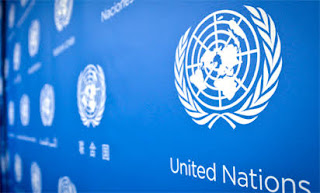Latest Reality Blog is a legal blog where you are updated on online latest news, gist, entertainment, events, motivational text, and genue articles.
President Muhammadu Buhari was Tuesday in Lome elected the new Chairman of the Authority of Heads of State and Government of the Economic Community of West African States (ECOWAS).
The President’s election was one of the high points of the 53rd Session of the Authority of Heads of State and Government of ECOWAS which held in the Togolese capital.
In his acceptance remarks, the Nigerian leader, who commended his colleagues for his election, noted that he did not offer himself for the post, “but you refused to take my no for an answer.”
He, however, told his fellow leaders that, “I am truly humbled and pledge to serve and work with all of you to deliver on peace, security, good governance and socio-economic development” of the sub-region, and “take our organisation to greater heights.”
President Buhari also commended his immediate predecessor and President of Togo, Faure Gnassingbe for successfully hosting two important meetings of the Joint Economic Community of Central African States (ECCAS) and ECOWAS as well as the 53rd Ordinary Session of the Authority of Heads of State and Government of ECOWAS.
The new Chairman had earlier been presented with the Emblem of ECOWAS by the outgoing Chairman, while the next meeting of the organisation will take place in Abuja on December 21, 2018.





